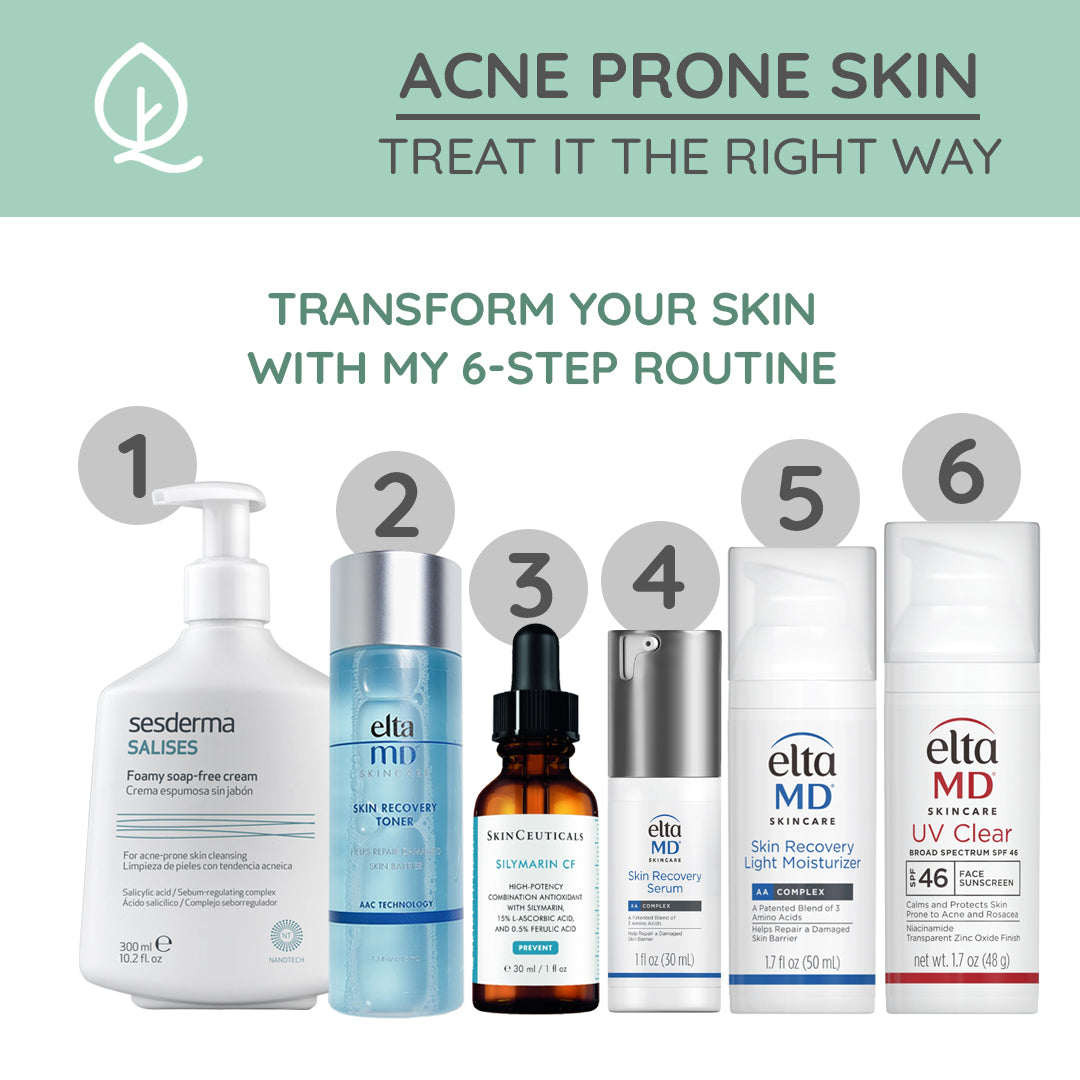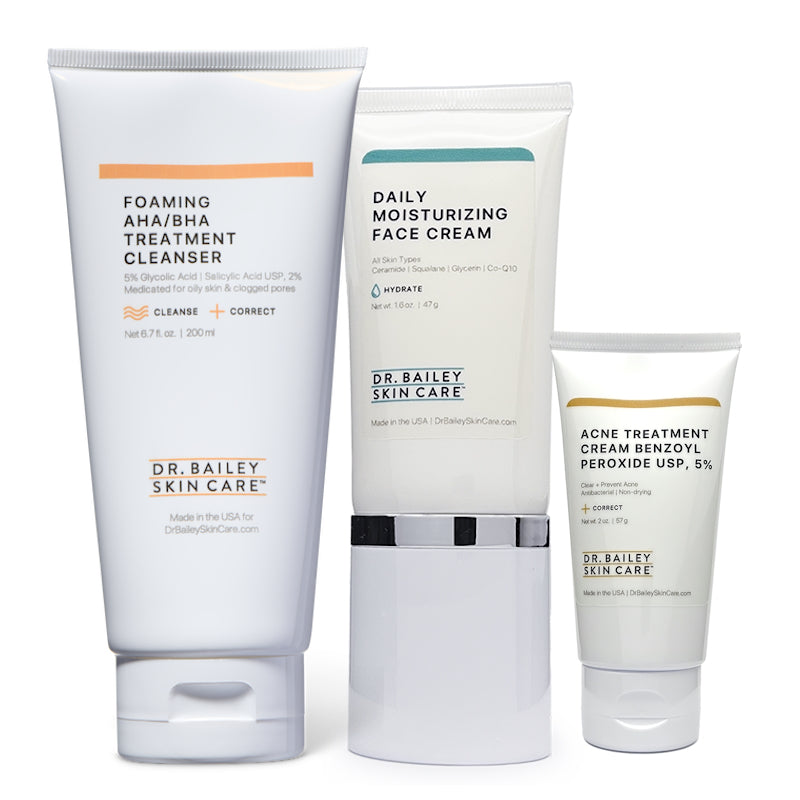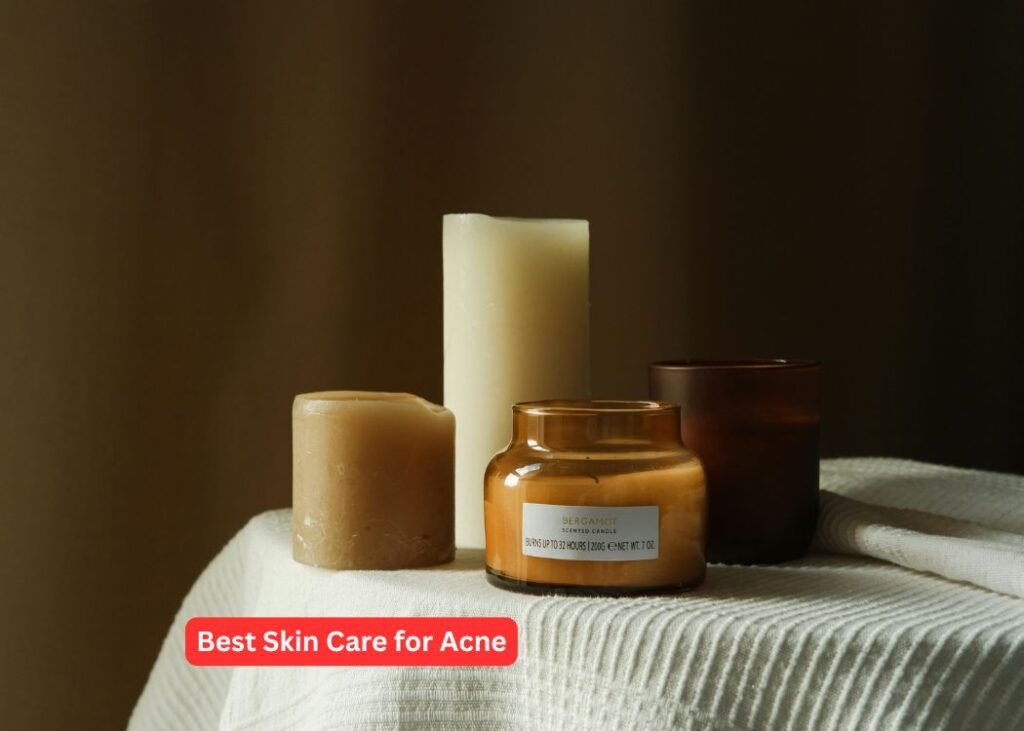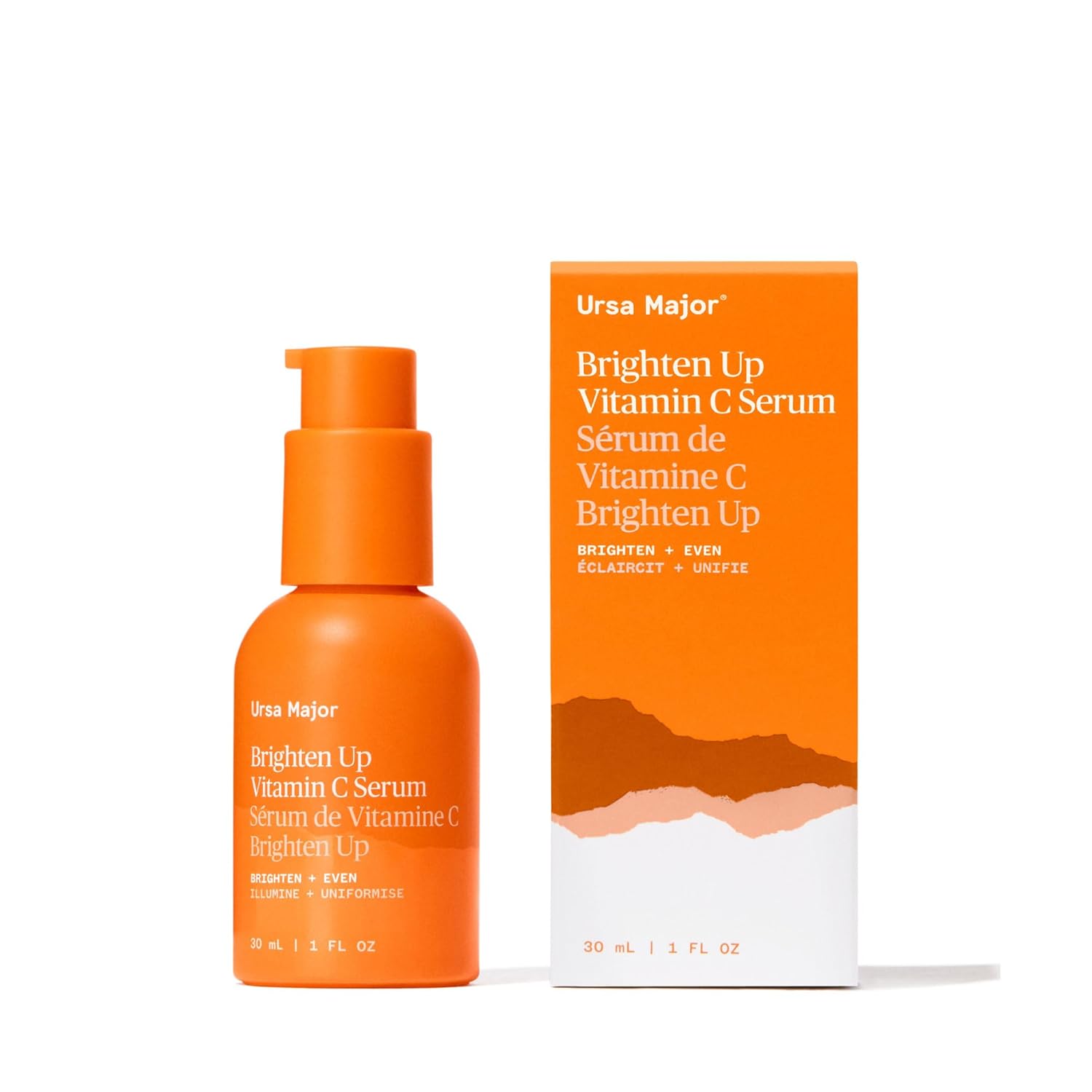Best Skin Care for Acne : Dealing with acne can feel like a never-ending battle. You try countless products, yet those stubborn blemishes keep showing up.
If you’re tired of the frustration and ready to find a solution that works, you’re in the right place. Imagine waking up, looking in the mirror, and seeing clear, healthy skin smiling back at you. Sounds like a dream, right?
It doesn’t have to be. This article will uncover the best skin care strategies for acne, offering you real hope and practical solutions. You deserve to feel confident and beautiful in your own skin, and we’re here to help you achieve just that. Keep reading to discover how you can make acne a thing of the past, transforming your skincare routine into one that truly works wonders.

Credit: www.shopcogornomd.com
Causes Of Acne
Acne is a common skin condition that affects people of all ages. Understanding its causes can help manage and prevent breakouts. Various factors contribute to acne development. These include hormonal changes, genetic factors, and diet and lifestyle.
Hormonal Changes
Hormones play a significant role in acne. During puberty, the body produces more androgens. These hormones increase oil production in the skin. Excess oil can clog pores, leading to acne. Women may experience acne during menstruation or pregnancy. Hormonal changes during these times can trigger breakouts. Managing hormone levels can reduce acne occurrence.
Genetic Factors
Your genes can determine your skin’s reaction to certain conditions. If your parents had acne, you might be prone to it too. Genetics can affect how your skin produces oil. It can also influence how your body responds to bacteria. Understanding your genetic predisposition can help find effective treatments.
Diet And Lifestyle
Diet impacts skin health. Certain foods can increase acne risk. High sugar and dairy intake may lead to more breakouts. Lifestyle choices also affect acne. Stress can worsen acne symptoms. Lack of sleep disrupts hormone balance, affecting the skin. A balanced diet and healthy lifestyle can improve skin condition.
Daily Skincare Routine
Acne can be challenging to manage. A daily skincare routine helps. Consistency is key. A routine can improve skin health. It also reduces acne flare-ups. Here’s a simple guide to follow every day.
Cleansing
Cleansing removes dirt and oil. Use a gentle cleanser. Avoid harsh chemicals. Wash your face twice a day. Morning and night. Use lukewarm water. This helps prevent irritation. Pat your face dry with a clean towel.
Exfoliation
Exfoliation removes dead skin cells. It unclogs pores. Choose a mild exfoliant. Use it twice a week. Too much can irritate skin. Be gentle. Avoid scrubbing hard. Focus on problem areas. Rinse with warm water.
Moisturizing
Moisturizing is crucial. It hydrates your skin. Choose a non-comedogenic moisturizer. It won’t clog pores. Apply it after cleansing. Morning and night. Even oily skin needs moisture. It balances oil production.
Effective Acne Treatments
Acne is a common skin concern that affects many people. Finding effective treatments can help manage this condition. Various options are available to treat acne, ranging from topical treatments to oral medications and natural remedies. Each method offers unique benefits and caters to different skin needs.
Topical Treatments
Topical treatments are applied directly to the skin. They help reduce inflammation and clear pores. Benzoyl peroxide is a popular choice. It kills bacteria and dries up excess oils. Salicylic acid is another effective ingredient. It exfoliates the skin and prevents clogged pores. Retinoids are also widely used. They increase cell turnover and unclog pores.
Oral Medications
Oral medications can treat severe acne. Antibiotics reduce bacteria and inflammation. They are prescribed for moderate to severe cases. Birth control pills can help women with hormonal acne. They regulate hormones and reduce breakouts. Isotretinoin is an option for severe, persistent acne. It reduces oil production and shrinks sebaceous glands.
Natural Remedies
Natural remedies offer gentle alternatives to chemical treatments. Tea tree oil has antibacterial properties. It helps reduce redness and swelling. Aloe vera is soothing and heals irritated skin. Honey is a natural moisturizer and has antibacterial effects. Green tea can reduce inflammation. It contains antioxidants that benefit the skin.
Choosing The Right Products
Finding the best skin care products for acne involves understanding your skin type and needs. Opt for gentle cleansers and oil-free moisturizers to prevent breakouts. Ingredients like salicylic acid and benzoyl peroxide can help fight acne effectively.Finding the right skincare products for acne can feel like navigating a maze. You might try one product after another, only to be left frustrated with little to no results. Choosing the right products is crucial for anyone battling acne. Understanding what to look for and what to avoid can make a world of difference in your skincare journey. Let’s dive into the specifics.
Ingredients To Look For
The ingredients in your skincare products play a pivotal role in fighting acne. Look for products containing salicylic acid, which helps unclog pores and reduce inflammation. Benzoyl peroxide is another effective ingredient that targets bacteria causing acne. Niacinamide is great for reducing redness and irritation. You might have heard about retinoids; they promote cell turnover, preventing pores from getting clogged. Adding products with these ingredients to your routine can significantly improve your skin’s condition.
Avoiding Harmful Chemicals
While choosing products, it’s essential to steer clear of harmful chemicals. Ingredients like parabens and sulfates can irritate the skin and worsen acne. Alcohol in skincare products can dry out your skin, causing your glands to produce more oil. Avoid products with heavy fragrances, as they often irritate sensitive skin. Keep an eye out for non-comedogenic labels, meaning they won’t clog your pores. Your skin will thank you for it.
Product Recommendations
With countless products on the market, finding the right one can be overwhelming. Consider starting with a gentle cleanser that contains salicylic acid. Brands like CeraVe and Neutrogena offer affordable options. A lightweight moisturizer with niacinamide can help balance your skin without feeling greasy. Spot treatments with benzoyl peroxide, like those from Clean & Clear, can target stubborn pimples. Remember, consistency is key, so give each product time to work its magic. Are you tired of playing skincare roulette? By choosing the right products, you’re one step closer to clearer skin. What changes will you make to your skincare routine today?
Lifestyle Changes For Clear Skin
Acne can affect anyone, but clear skin is achievable. Lifestyle changes play a crucial role in managing acne. They help maintain skin health and prevent breakouts. Let’s explore essential changes for healthier skin.
Balanced Diet
Diet impacts skin health significantly. Eating fruits and vegetables nourishes the skin. Avoiding processed foods reduces acne risks. Whole grains and lean proteins are beneficial. Hydration is key. Drink plenty of water daily.
Regular Exercise
Exercise boosts circulation. Improved blood flow helps nourish skin cells. Sweating removes toxins from the body. Physical activity reduces stress, which can cause acne. Aim for at least 30 minutes of exercise daily.
Stress Management
Stress triggers acne breakouts. Managing stress is essential for clear skin. Practice relaxation techniques like meditation. Deep breathing helps calm the mind. Prioritize sleep for better skin health. Try to maintain a positive mindset.

Credit: drbaileyskincare.com
Professional Help
Finding the right skincare routine can make a big difference for acne-prone skin. Professional advice helps identify effective treatments tailored to individual needs. Clear skin begins with expert guidance.When battling acne, professional help can be invaluable. It’s often the key to clear skin. Many people struggle with acne. Professional guidance may provide solutions not found in over-the-counter products. Seeking expert advice can lead to tailored treatments. Let’s explore the benefits of consulting a dermatologist and advanced treatments available.
Dermatologist Consultation
Visiting a dermatologist offers many benefits. They understand skin deeply. Dermatologists can identify specific acne types. This helps in creating effective treatment plans. They consider your skin type and condition. Consultations often include a thorough skin analysis. This helps pinpoint underlying causes of acne. Dermatologists can prescribe medications not available in stores. These might include topical treatments or oral medications. Regular follow-ups ensure treatments work effectively. Adjustments can be made to improve results. This personalized approach often leads to clearer skin.
Advanced Treatments
Advanced treatments offer more options for acne sufferers. Laser therapy is one such method. It targets acne scars and reduces inflammation. Chemical peels exfoliate the skin. They help unclog pores and reduce acne. Another option is microdermabrasion. It removes dead skin cells and promotes new growth. Light therapy is gaining popularity too. It kills acne-causing bacteria and reduces oil production. These treatments are performed by trained professionals. They ensure safety and effectiveness. Discuss these options with your dermatologist. They can help decide the best course for your skin.

Credit: natalieoneilll.com
Frequently Asked Questions
What Causes Acne On The Skin?
Acne is primarily caused by clogged pores due to excess oil, dead skin cells, and bacteria. Hormonal changes, stress, and diet can exacerbate the condition. Proper skincare can help manage these factors and reduce breakouts.
How Can I Prevent Acne Breakouts?
Prevent acne by maintaining a consistent skincare routine that includes cleansing, exfoliating, and moisturizing. Use non-comedogenic products to avoid clogging pores. Additionally, manage stress and maintain a healthy diet to minimize breakouts.
Which Ingredients Help Treat Acne?
Look for skincare products with salicylic acid, benzoyl peroxide, and retinoids. These ingredients help unclog pores, reduce inflammation, and promote skin cell turnover. Natural options like tea tree oil and aloe vera can also soothe and heal acne-prone skin.
Can Diet Affect My Acne?
Yes, diet can impact acne. Consuming high-glycemic foods, dairy, and sugary snacks may trigger breakouts. Opt for a balanced diet rich in fruits, vegetables, and whole grains to support healthy skin. Staying hydrated also helps maintain skin’s natural barrier.
Conclusion
Acne care requires patience and the right products. Choose gentle cleansers and moisturizers. Avoid harsh ingredients that irritate the skin. Consistency is key in any skincare routine. Always follow directions for better results. Consult a dermatologist for persistent acne issues.
They offer professional advice tailored to your needs. Healthy skin is a journey, not a destination. Small changes lead to clearer skin over time. Remember, everyone’s skin is unique. What works for one may not work for another. Keep exploring what suits your skin best.
Stay committed, and your skin will thank you.



